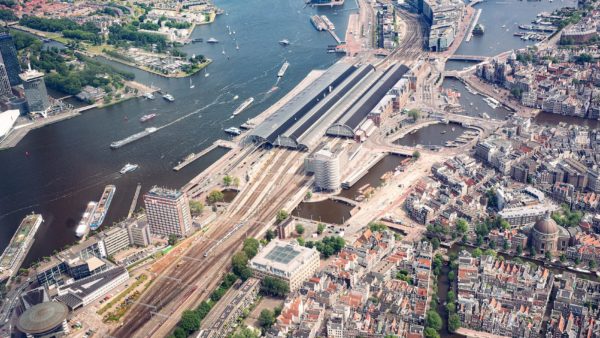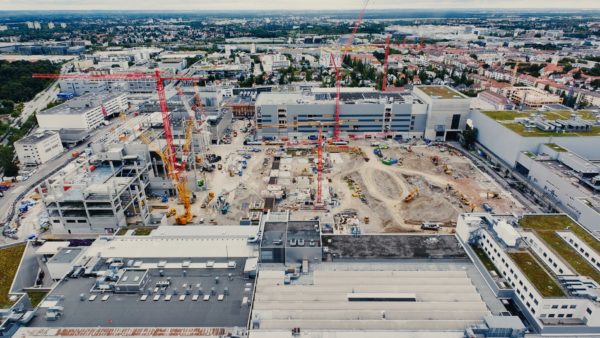Amid growing international protests, South Korea’s majority state-owned utility, Korea Electric Power Corp (Kepco), has said two of four overseas coal power projects it is funding will now be scrapped or converted to liquified natural gas (LNG) plants.
The two are the 1,000MW Sual 2 project in the Philippines and the 630MW Thabametsi plant in South Africa.
But Kepco will still invest more than $230m in two new coal plants in Vietnam and Indonesia, prompting accusations of hypocrisy.
“Kepco and its subsidiaries will not be pursuing new overseas coal power projects,” the utility’s chief executive Kim Jong-gap told an annual audit hearing held by the Korean National Assembly yesterday.
And Kepco drew similar condemnation in June when it decided to invest $51m in the 2,000MW Jawa 9 & 10 coal power plant in Banten Province, Indonesia.Â
South Korea has been identified as among the top three coal-power financiers in the world.
On Tuesday this week (13 October) protesters gathered outside the South Korean embassy in Manila, the Philippines, to call for the scrapping of the Sual 2 project (pictured). This project is estimated to cost $1.8bn.
Signatories to the Paris Agreement
Yesterday’s exchange took place at an audit hearing held by the National Assembly’s Trade, Industry, Energy, SMEs and Startups Committee.
The dialogue was recorded and translated for GCR by Seoul-based NGO, Solutions for Our Climate.
Under questioning by assemblywoman Lee Su-jin, Kepco’s chief executive Kim Jong-gap said: “Out of the four [overseas coal power plants] projects, we decided to go ahead with two, and transition the other two to gas or cancel them at this point. Kepco and its subsidiaries will not be pursuing new overseas coal power projects.”
The two projects going ahead are the ones in Vietnam and Indonesia. They run counter to the Paris Agreement, which commits countries to keep global temperature elevations well below 2 degrees Celsius.
South Korea, Vietnam and Indonesia have all signed and ratified the agreement.
Hypocritical
Coal opponents say South Korea’s sanctioning of Kepco’s ongoing coal investments is hypocritical because this year it launched the Korean Green New Deal, which aims for a “net-zero emissions society,” while last month the Korean legislature voted to declare a climate crisis.
The Korean Green New Deal is intended to avert 12.3 million tons in emissions, but Vung Ang 2 alone will emit more than 200 million tons of greenhouse gases over its 30-year life span.

”We welcome that Kepco has finally stopped the Sual project in its tracks,” said Sejong Youn, director of the overseas coal finance programme at Solutions for Our Climate, told GCR.
“This is a major victory for the Sual community’s health and our climate. It is not too late for Kepco to take the same approach for its recent investment in Jawa 9, 10 in Indonesia and Vung Ang 2 in Vietnam.
“Both of these countries have adopted ambitious renewable energy plans, and converting these coal projects into gas or renewables will be far more beneficial for all parties involved.”
“Unwise and dirty investments”
Lidy Nacpil, coordinator of Asian Peoples’ Movement on Debt and Development, welcomed the Sual 2 cancellation in the Philippines but called on Kepco to “show real commitment to shift away from unwise and dirty investments immediately”.
She added: “We ask that KEPCO reverse its decision on Vung Ang 2 and halt its financing for Jawa 9 and 10 because the climate crisis is worsening. The world needs to refrain from building new coal capacity to stay within the goal of the Paris Agreement. We also ask KEPCO not to proceed using this project to transition to gas.”
Also responding to Kepco’s statement yesterday was Ian Rivera, national coordinator of the Philippine Movement for Climate Justice.
“We hope that this is not a false promise and that Kepco will soon make an explicit statement that it is withdrawing from the Sual 2 project,” he said.
“It is time for South Korea to end its support for overseas coal. The coal-fired power projects it has supported through its financing institutions are locking developing countries into decades of fossil fuel infrastructure they can’t afford. And the climate impacts of these projects fall most heavily on the poor.”
Solutions for Our Climate produced a study this year (Korean) naming South Korea as among the world’s top three financiers of overseas coal power, providing some $10bn between 2008 and 2018
Image: Activists rally in front of the South Korean embassy in Manila, the Philippines, 13 October 2020 (Supplied by Solutions for Our Climate)
Further reading:










